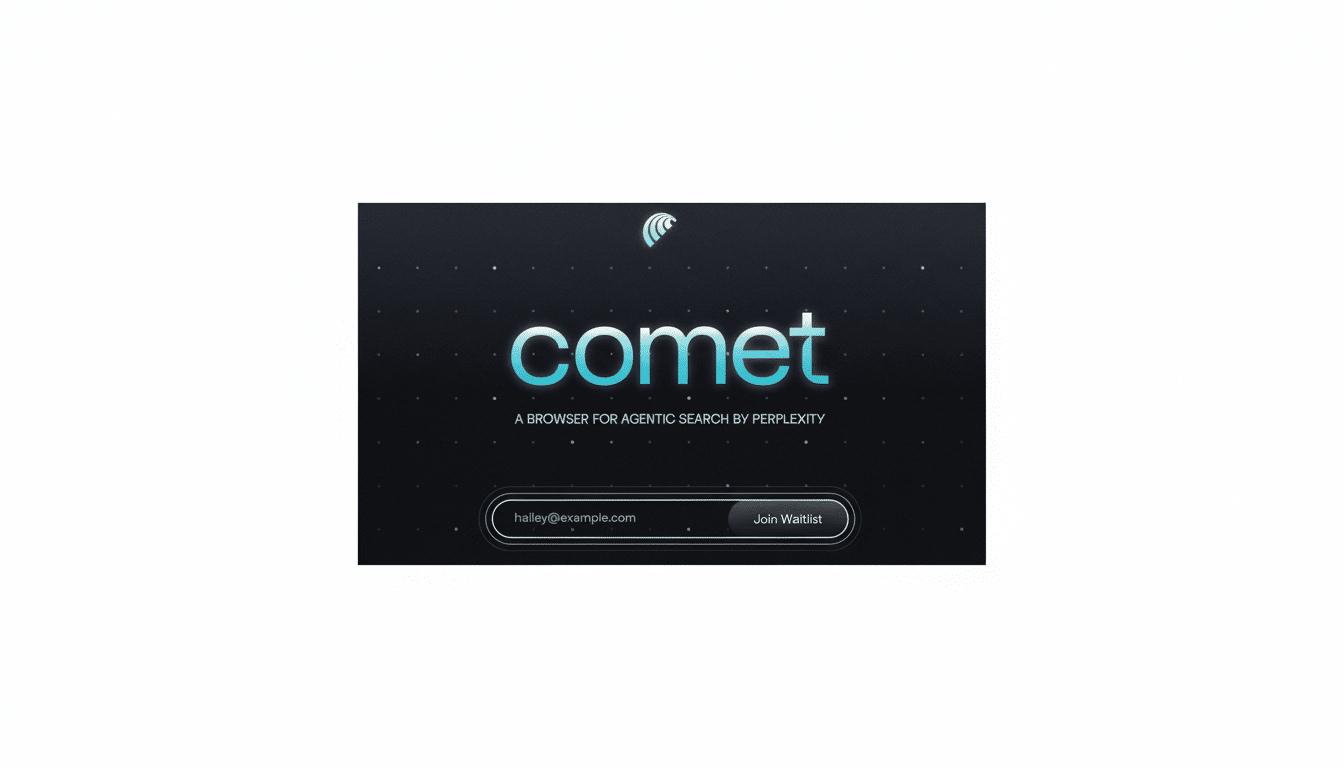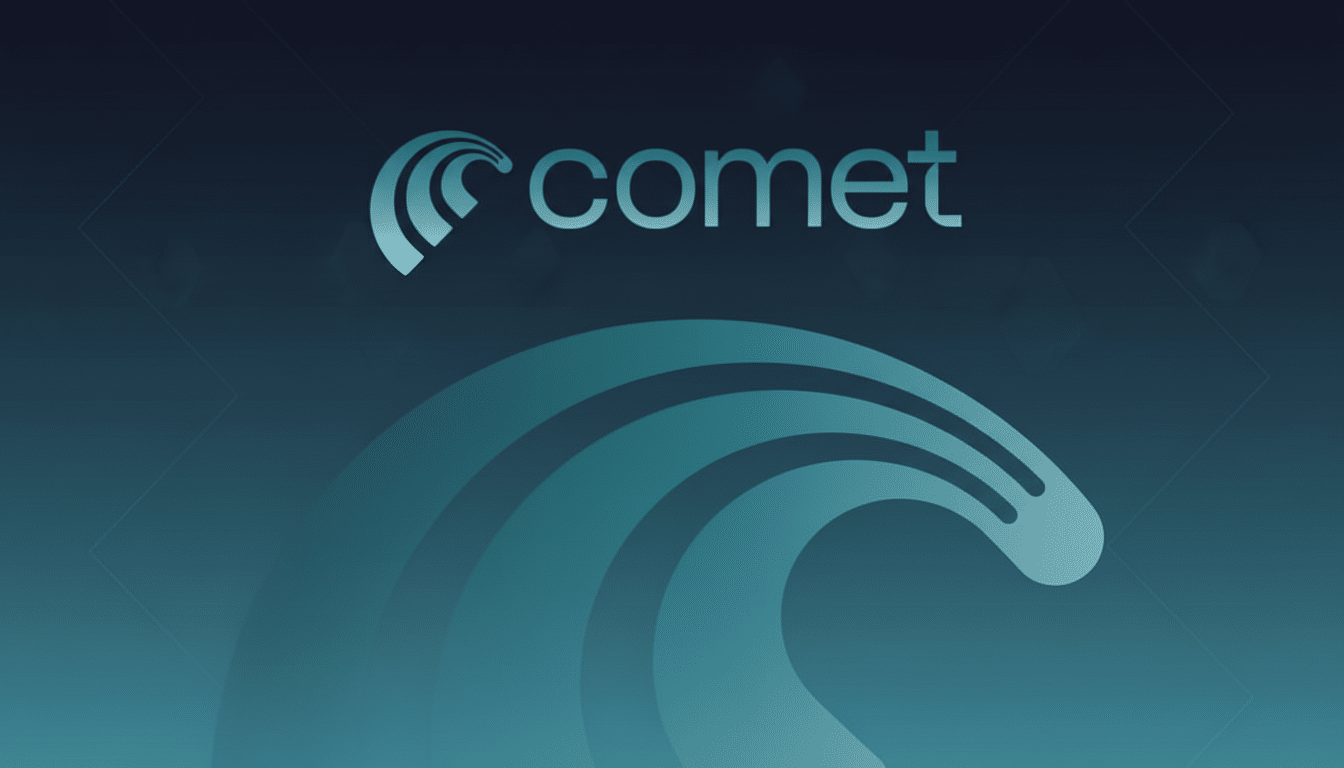Perplexity is making its Comet AI browser free for all users, in addition to the first layer of access without going on a waitlist or having to pay what it had charged as “its highest-priced plan,” Panossian said. The company also announced that a standalone mobile app is on the horizon, suggesting an aggressive expansion of this whole idea into planting an AI-first browser on every screen.
Comet opens to everyone with direct desktop downloads
Comet first rolled out to customers in its $200-a-month Max tier. That exclusivity is over. Now, the browser is finally directly available for desktop download, allowing everyone to experience an assistant-native browsing experience without a paywall.

Interest, Perplexity says, has been “overwhelming,” with millions signing up for early access. Making Comet widely available is a traditional growth move: reduce friction, develop daily active use, and then add premium features for power users and teams.
How the AI browser works: an in-line assistant for browsing
Comet combines a search-focused AI assistant with familiar navigation, tabs, and reading views. Instead of separating queries into different chat apps or search engines, the assistant runs in-line on the page, quoting sources and summarizing content as you browse. The goal is to minimize context switching and make the browser an active research assistant.
So in practice, you could open a product page, request a spec comparison to competitors, and get back something structured that references the source pages.
It also has the space to support longer workflows — drafting briefs, pulling reading lists together, following threads — without jamming you into a separate chat window.
This approach puts Comet in a conversation with AI-infused competitors like Microsoft Edge with Copilot, Opera’s Aria, Brave’s Leo, and the Max features of Arc. What’s different: Comet’s assistant-first design is the main event, not a sidebar add-on. With Chrome at approximately two-thirds of desktop share globally, according to StatCounter, power users value differentiation — and assistants that do something by default are becoming the new ordinary.
Mobile app coming soon, with iOS and Android releases
Perplexity says a mobile app is “coming soon” and calls it a personal AI made for use with phones, suggesting that separate iOS and Android releases are on the way. A capable mobile client is also key; the majority of casual searches are done from smartphones, and an AI browser capable of handing off sessions between desktop and mobile seamlessly has more of a shot at becoming part of someone’s daily practice.

At the moment, Comet is a standalone desktop download through the company and not available from the Mac App Store or the Microsoft Store. That distribution decision accelerates releases, but can complicate enterprise rollouts where managed app store delivery and update policies are frequent requirements.
New background assistants and paid add-ons for power users
In addition to the free browser, Perplexity is developing an ecosystem of AI capabilities. Background Assistants are intended to operate asynchronously on longer-running tasks, e.g., researching a subject, following updates and developments, or writing materials so that users can concentrate on decision-making rather than digging. It’s an AI back office that works parallel to your browser.
An Email Assistant is available with the Max plan ($200 per month or $2,000 annually) for premium customers. You can blind-copy the assistant on threads to automatically schedule meetings, pull references, or draft responses. It’s a productivity play targeting heavy emailers and knowledge workers, the ones already paying for advanced tooling.
Comet is also introducing curated news for paid customers. It’s a package deal — the kind you might see for premium news aggregators — for Perplexity Pro and Max, while non-subscribers can buy access separately for $5 per month. Early publishing partners listed include CNN, Condé Nast titles, Fortune, Le Figaro, Le Monde, the Los Angeles Times, and The Washington Post — an unusually wide range for a service that is AI-native.
What this means for the evolving landscape of browser wars
The browser is the vehicle to search — and, by extension, for the economics of the open web. In offering Comet for free, Perplexity is betting that integrated assistants and reliable citations will be able to entice users away from habits long in place. If it works, that moves queries — and attention — onto AI-native interfaces, where summaries and actions matter more than ten blue links.
The broader market is already heading in this direction. The big browsers are treating AI as something to be bundled out of the box, and research from firms like StatCounter demonstrates just how difficult it is to dethrone an incumbent without offering a step-change experience. Comet’s free version, coupled with agentic features and premium add-ons, is one effort to bring about that new normal: a browser that doesn’t merely reflect the web, but actively processes it alongside you.
The next milestone is mobile. If Perplexity can get the form factor just right — with a fast, privacy-conscious app that hands off context seamlessly and leaves citations front and center — it could compel rivals to reconsider how assistant features surface on phones. By then, the free desktop release will serve as a starting point — and give the company far more users to experiment with what an AI-first browser can be.

